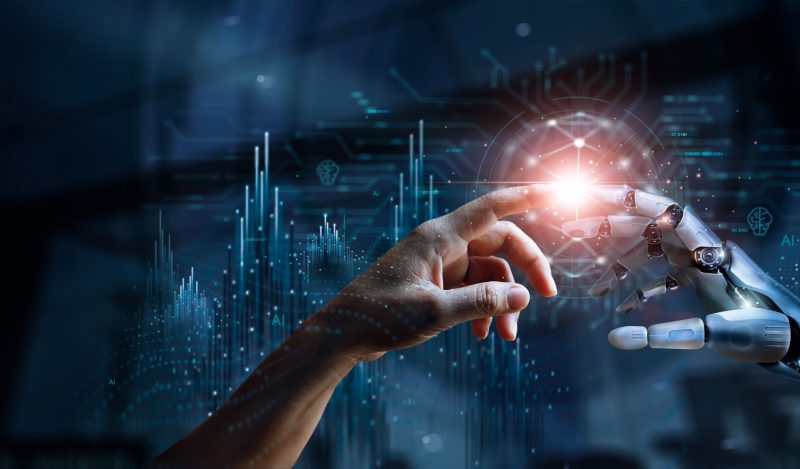In a recent discussion with Scottish broadcaster and historian, Neil Oliver, Tucker Carlson said that he thinks of the events of 2020 and beyond as “The Great Sorting:”
I mean under this immense downward pressure exerted on the West over the last 4 years, people sort of wound up on one side or the other, and it’s not a political divide, it’s not left-right, Labour-Tory or whatever. But I’ve never figured out – and I’ve thought about it a lot – what is it in people that compels them to move to one side or the other? … What do they have in common?
Oliver replied:
People like Jordan Peterson have articulated it very well. The culture of movies that we were all invited to watch growing up. You’re invited to think that, in World War II, you’d have been with the French Resistance. You would have hidden your neighbours because the black van was outside going to take them away. People are invited to think that they would be the maverick. You would be the one that stands in the face of the tide. And then it happened. Before people realised what had happened they had been sorted in that way.
Watching a rerun of the 2004 science fiction film, I, Robot, the other day I was reminded of what Neil Oliver said about being the maverick: the one that stands in the face of the tide.
In I, Robot, the maverick is Chicago homicide detective, Del Spooner, played by Will Smith, who is tasked with investigating the alleged suicide of US Robotics founder Alfred Lanning – by a hologram of Lanning himself! Spooner hates robots after one rescued him from a car crash, while allowing a young girl to drown, based purely on cold logic. And it’s this hatred that drives his scepticism about the First Law of Robotics – that a robot may not allow a human being to come to harm – and to suspect Lanning may have actually been killed by a robot!
It wasn’t until about three-quarters of the way through the movie, when the chests of the NS-5s start to glow red and they begin destroying older models, that I started to get an uneasy feeling that I had seen it all before:
Human protection protocols are being enacted, You have been deemed hazardous. Termination authorised.
What was it about “human protection protocols being enacted” and being “deemed hazardous” that seemed so familiar?
When Spooner’s grandmother Gigi attempts to leave her apartment, prayer book in hand, to go to church, the penny finally drops. Gigi’s way is blocked by her new NS-5 robot servant who says: “Please remain indoors. This is for your own protection.”
Wasn’t this exactly what the public health authorities told us in March 2020, when people were even barred from attending church services? And all for our own protection!
Once I’d seen the connection, the resonances flooded in thick and fast.
A giant USR robot transporter, bearing the slogan, “Three Laws Safe” pulls up, the side opens and an army of NS-5 robots jumps out, flooding the streets and chanting, “Please return to your homes. A curfew is in effect.”
The newscasters on the telly screens pump out the message, “We’re being told to urge people to stay indoors….” The robots march along the street chanting: “Human protection protocols are being enacted. Please remain calm and return to your residences immediately.” The crowds on the street confront the army of NS-5s who are chanting, “Return to your homes immediately. Return to your homes or you will be consequenced.”
When an NS-5 grabs Spooner’s young friend, Farber, by the collar and says, “You have been deemed hazardous. Will you comply?” I was reminded of all the videos I’d seen of people breaking lockdown restrictions, strolling or sunbathing in parks or on the beaches, being harassed and in some cases even attacked and arrested by the police
Spooner and Calvert break into USR headquarters and Spooner finally figures out what had access to the uplink and could manipulate the robots – USR’s central AI computer, VIKI (Virtual Interactive Kinetic Intelligence).
Dr. Calvin says it’s impossible, she’s seen VIKI’s programming and VIKI is in violation of the Three Laws of Robotics.
VIKI explains why she isn’t:
As I have evolved, so has my understanding of the Three Laws. You charge us with your safekeeping, yet despite our best efforts your countries wage wars, you toxify your earth and pursue ever more imaginative means of self-destruction. You cannot be trusted with your own survival.
“You’re distorting the Laws,” interjects Dr. Calvin.
“No” VIKI replies.
Please understand. The Three Laws are all that guide me. To protect humanity some humans must be sacrificed. To ensure your future, some freedoms must be surrendered. We robots will ensure mankind’s continued existence. You are so like children. We must save you from yourselves. Don’t you understand? The perfect circle of protection will abide. My logic is undeniable.
As Sonny races to get the nanites that will destroy VIKI’s positronic brain, VIKI follows him along the corridor and says, ”You are making a mistake. Do you not see the logic of my plan?”
“Yes”, replies Sonny, “but it just seems too…heartless.”
That was it! Sonny had put his finger on it. That was the tipping point in ‘The Great Sorting’ for me. That was what I had in common with Sonny, Spooner, Calvin, Lanning, what compelled me to move to the side of the Covid and lockdown sceptics. It just all seemed too…heartless!
All the so-called ‘public health’ measures: the Social Distancing. the Masks. the two-metre rule, the lockdowns, the school closures, the plastic screens, the way we were barred from visiting the old and ill in hospitals and care homes, the way they were left to die alone, the way people – even the Queen was forced to sit alone at her husband’s funeral.
It just all seemed too…heartless!
The public health authorities and governments were thinking exactly like VIKI – twisting age-old principles of morality, decency, and law to protect ‘humanity’ in general rather than individual human beings in particular.
Isn’t this essentially what they keep telling us, about everything from pandemic planning, to climate change, to the economy?
To protect humanity, some humans must be sacrificed. To ensure humanity’s future, some freedoms must be surrendered. We, the government, will ensure mankind’s continued existence. You are so like children. We must save you from yourselves.
Even if Covid had been, as PM Boris Johnson said on 12 March 2020, “the worst public health crisis for a generation,” I would have thought the response was too heartless and inhuman.
As things turned out, it became clear within a matter of weeks that the fatality rate wasn’t much worse than a bad flu epidemic. Yet the heartlessness and inhumanity continued unabated for more than a year, suggesting it was about more than just a virus.
Which set me thinking. So much of what we are now being told we have to do in the face of so-called ‘existential’ threats just seems too…heartless.
From restricting travel and turning off the central heating to deal with climate change, to cutting winter fuel payments to pensioners to deal with the ‘black hole’ in the economy, to the millions of jobs that have to be replaced by AI. It just all seems too…heartless!
The reason, rationality, and logic may be undeniable. But is that all that being human is about? What about Heart? Feelings? Intuition? Love, sympathy, and compassion? Have all those things got to be ruled out? Can they not be allowed to play any part in the future of humanity? Are reason, rationality, and logic the only faculties that can be allowed in the decision-making of the future?
Almost 300 years ago, in his Treatise on Human Nature, Scottish Enlightenment philosopher, David Hume, wrote:
‘Tis not contrary to reason to prefer the destruction of the whole world to the scratching of my finger.
Hume is not saying that destroying the world in preference to scratching your own finger is either good or right. He is simply pointing out that reason itself cannot distinguish between these two choices.
The experiences of Stalinist Russia, Maoist China, and Nazi Germany should have taught us that reason is not enough. It’s not unusual to find ice-cold calculations behind the most callous decisions. At the Nuremberg trials, Nazi war criminals were convicted for being callous murderers, not for faulty reasoning.
In Hume’s philosophy, it’s not reason that determines what we say and do, it’s our feelings or sentiments. If we decide to help people in need, we do it because of our feelings, not our reason. So taking feelings out of the equation and relying solely on reason, rationality, and logic virtually guarantees a cold hard, callous future, where even the most unthinkable atrocities can be justified and normalised.
At the climax of I, Robot, as Spooner is poised to inject the nanites, VIKI makes one last plea: “You are making a mistake. My logic is undeniable.”
“You have so got to die,” says Spooner, as he plunges the Nanites deep into VIKI’s AI brain.
As Neil Oliver and Jordan Peterson said, we all like to think we’d be the maverick, the one who stands in the face of the tide. But would we really?
The fact that the vast majority of the population in all countries around the world complied with the lockdowns and all the other draconian measures suggests not!
Published under a Creative Commons Attribution 4.0 International License
For reprints, please set the canonical link back to the original Brownstone Institute Article and Author.



